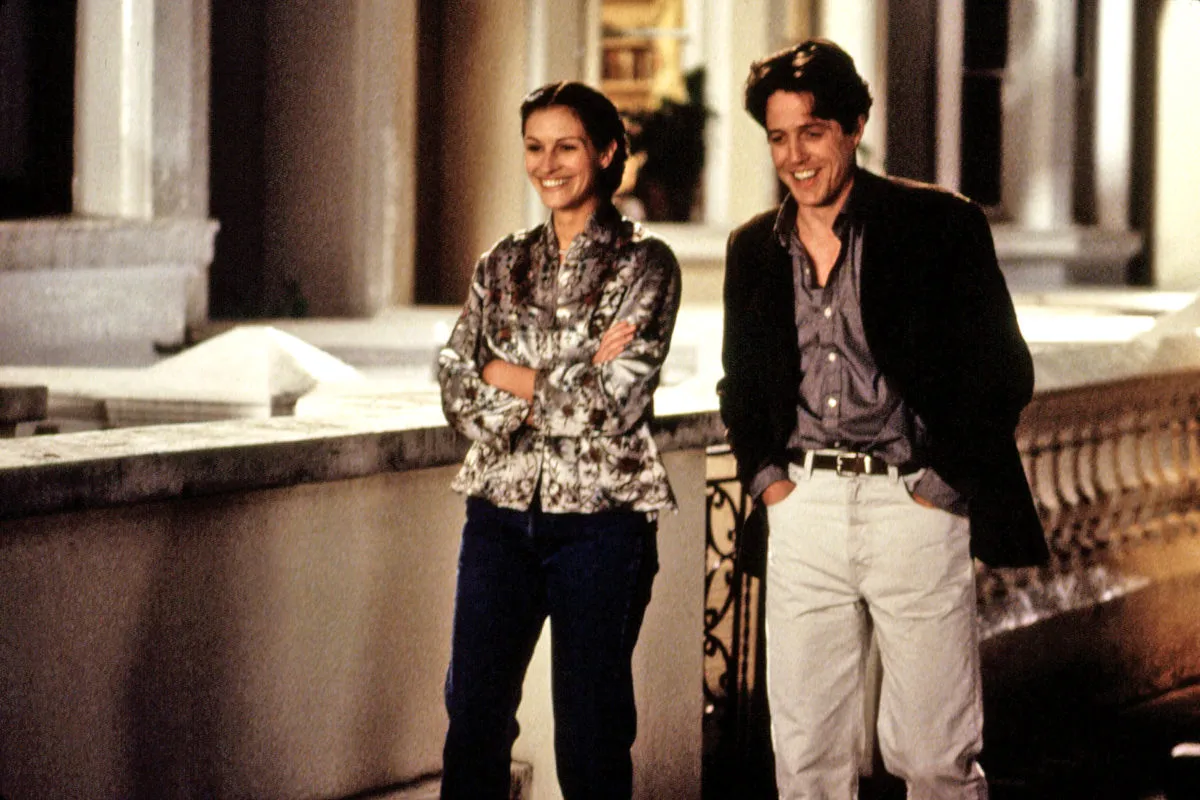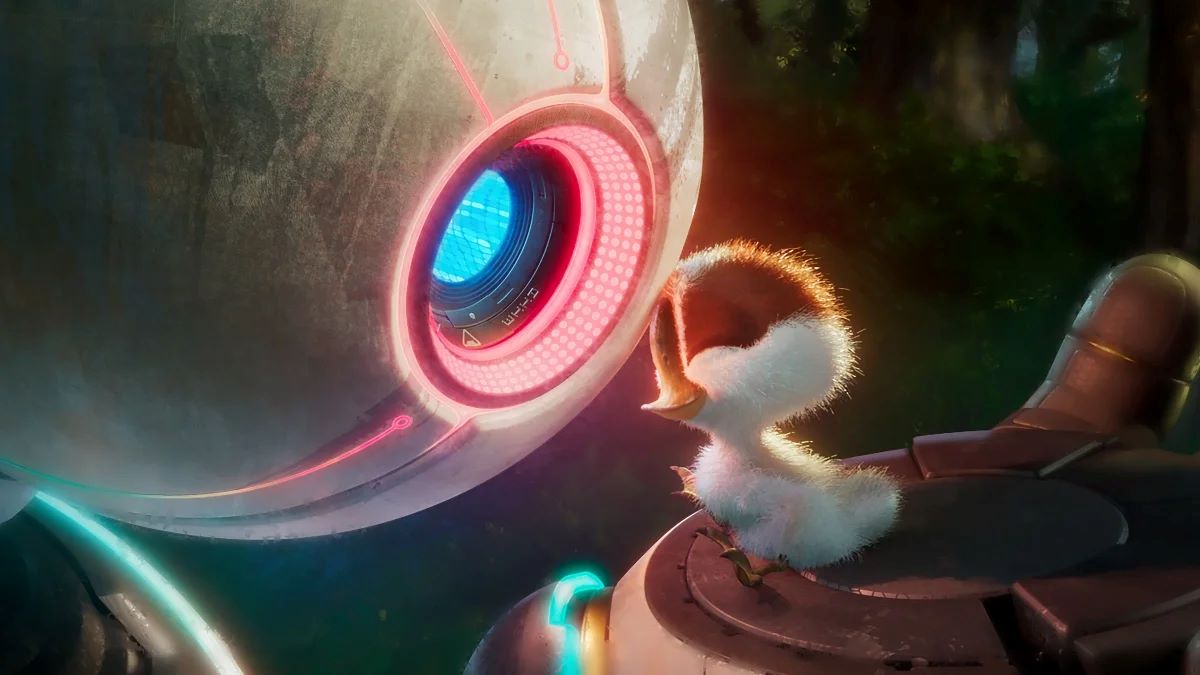For quite some time, the idea that Notting Hill is a great example of a romantic comedy has permeated popular culture, and through all that time, I tried to remember what made it so special. So, I rewatched it and saw what I’ve seen countless times in movies and televisions, just with a reversal of the sexes. The film, which stars Hugh Grant and Julia Roberts, is a typical love story that focuses on the difference of class, and flipped gender roles aside, I found that it has the same problem of most romantic comedies.
William Thacker (Hugh Grant) is a bookstore owner who is divorced and lives his life with an eccentric flatmate. When Anna Scott (Julia Roberts) comes into his shop, the two fall into a love affair with one another despite her fame as an actress and his less-than-popular bookstore. While the two are spending all their time together, William eventually learns that Anna has a boyfriend (Alec Baldwin) and doesn’t want to really talk to her.
To be honest, that’s a very typical romantic comedy trope that I wish would die out. One member of the couple having a big lie that hurts the other? If it were me, I wouldn’t be around to figure out what other lies they’re keeping from me, but in our “romantic” movies, we let the lies permeate and turn into feelings? It’s strange.
It’s the same problem as in a movie I love very much, called Only You. Robert Downey Jr.’s character keeps lying to Marisa Tomei’s character because he thinks they should be together, and she eventually agrees, which … why? Why does William Thacker, who has been lied to by Anna Scott, go back with her?
So, sure, Notting Hill is a movie that many see as romantic, but it’s built on lies and set around two characters who deserve better than what they’re getting. We need to grow past the idea that one character has to mess up in a way we’d be unlikely to (and often shouldn’t) forgive in real life in order to bring drama into romantic comedies. We can bring tension and understanding to our characters and their relationships without lying or cheating to do so.
Anna Scott kind of sucks as a character. She throws William into a press junket for no reason instead of just … telling someone a friend is coming. She doesn’t let him know about her boyfriend and inserts herself into his life and friends, so when he does leave her over the boyfriend news, he seems heartbroken even though they just met, and then they’re weird about each other when he goes to visit her months later on a set where she mocks him?
And we’re meant to like this relationship and think it’s cute? Maybe that’s the point, but it’s a Richard Curtis film (the same man who gave us Love Actually, Bridget Jones’s Diary, Four Weddings and a Funeral, and more), so I doubt it.
Yes, Notting Hill was sort of fun because it was the woman in the wrong for once, but still, she had to not tell William about her boyfriend and let him think she was single? It’s warped and not really something we should strive for romantically, so in the future, we can look at movies like this and realize that they’re not the ideal situation for anyone.
(image: Universal Pictures)
Want more stories like this? Become a subscriber and support the site!
—The Mary Sue has a strict comment policy that forbids, but is not limited to, personal insults toward anyone, hate speech, and trolling.—










Published: Jul 26, 2019 04:25 pm